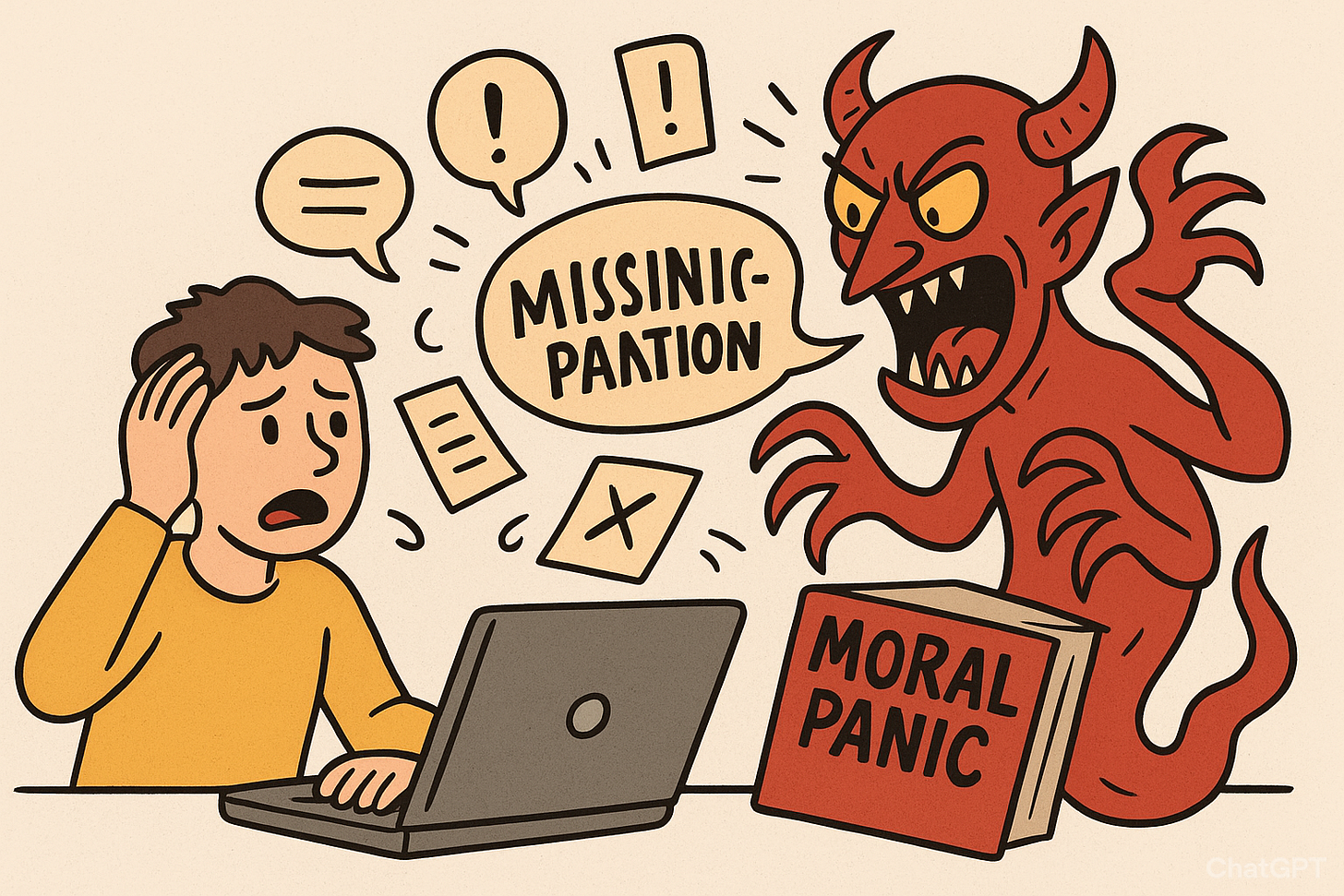Did a Large Study Really Provide a "Ringing Endorsement" of School Cellphone Bans?
How The Economist completely screwed this up.
Recently The Economist magazine raised eyebrows, pointing at a study in India that, The Economist claimed, provided a “ringing endorsement” of cellphone bans in schools. But did the study in question do any such thing? Or was this yet another example of the kind of sloppy journalism that typifies moral panics?
In reality, most of the study’s findings showed no benefit from cellphone bans. As the abstract states “…there were no significant changes in overall student well-being, academic motivation, digital usage, or experiences of online harassment.”
The one finding for grades is so exceptionally small (d= 0.086) it is likely statistical noise…a common problem in social science that causes enormous misinformation and confusion1. An effect so unreliably tiny should never have been interpreted as supporting cellphone bans.
In fact, this study is better evidence against cellphone bans than for them.
So, that’s right…a study from India basically found no evidence that cellphone bans helped kids in any way, and The Economist, somehow ignoring most of the article’s abstract, made the false claim that such unimpressive data provided a “ringing endorsement” (get it, cellphone bans? Ringing endorsement?) for cellphone bans in schools.
Also as an important point, the study in question is actually an unpublished preprint. Unreviewed preprints are notoriously unreliable as we once learned from the Cold Fusion debacle. This has been a really bad trend lately. Another research group falsely claimed having a consensus among scholars on social media effects based on an unreviewed preprint they marked on social media. It turned out that many of the articles on the paper itself didn’t agree with such a claim, let alone scholars in the field.
I don’t for one moment think that peer review is flawless. But this rush to promote preprints is a bad trend and has already caused significant misinformation in this field. It really needs to stop.
So The Economist is really scraping the bottom of the barrel here…desperately relying on an unpublished non-peer-reviewed study with results that are pretty much 0 to promote some pretty grandiose claims in support of a failing policy push in schools.
But the truth is that the Indian study provides one more piece of evidence against the value of cellphone bans. This supports other studies in this area as well as anecdotal evidence which, on balance, find little evidence that such bans are useful for promoting student outcomes.
We know that teachers and administrators are making wild claims of remarkable success for cellphone bans that aren’t supported by public records requests for data from their own schools. We can now see that journalistic outlets like The Economists are willing to publish careless fluff, so long as it supports the moral panic narrative.
The Economist article was simple misinformation, nothing more or less. It typifies the lack of critical thinking and low rigor common for moral panic beliefs. Somewhere in here, whether on the part of scholars or journalists, there also seems to be a lack of basic honesty.
Batten down folks…we’re likely to see a lot more similar garbage blowing through this moral panic tsunami until it eventually lets up.
In essence, in large sample studies like this one, a lot of random “crud” relationships pop up as “statistically significant”. We’ve known for decades that we shouldn’t rely on statistical significance as the mark of important or hypothesis supportive findings. Yet, poorly trained and naive scholars keep doing it. Perverse incentives have prevented the field from taking rigorous and cautions interpretation of effect sizes seriously. So we’re too often still stuck with the p < .05 and all the misinformation that comes from that.



Ha yeah one of the few things where there is true bipartisan agreement. I. E. How they all tend to promote moral outrage garbage around mobile phone usage.